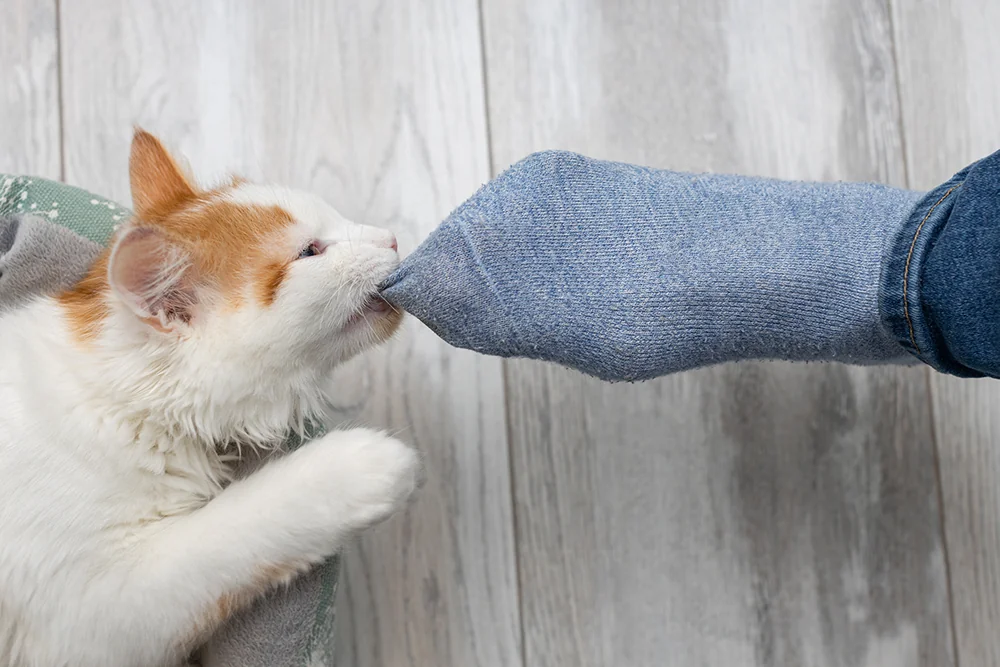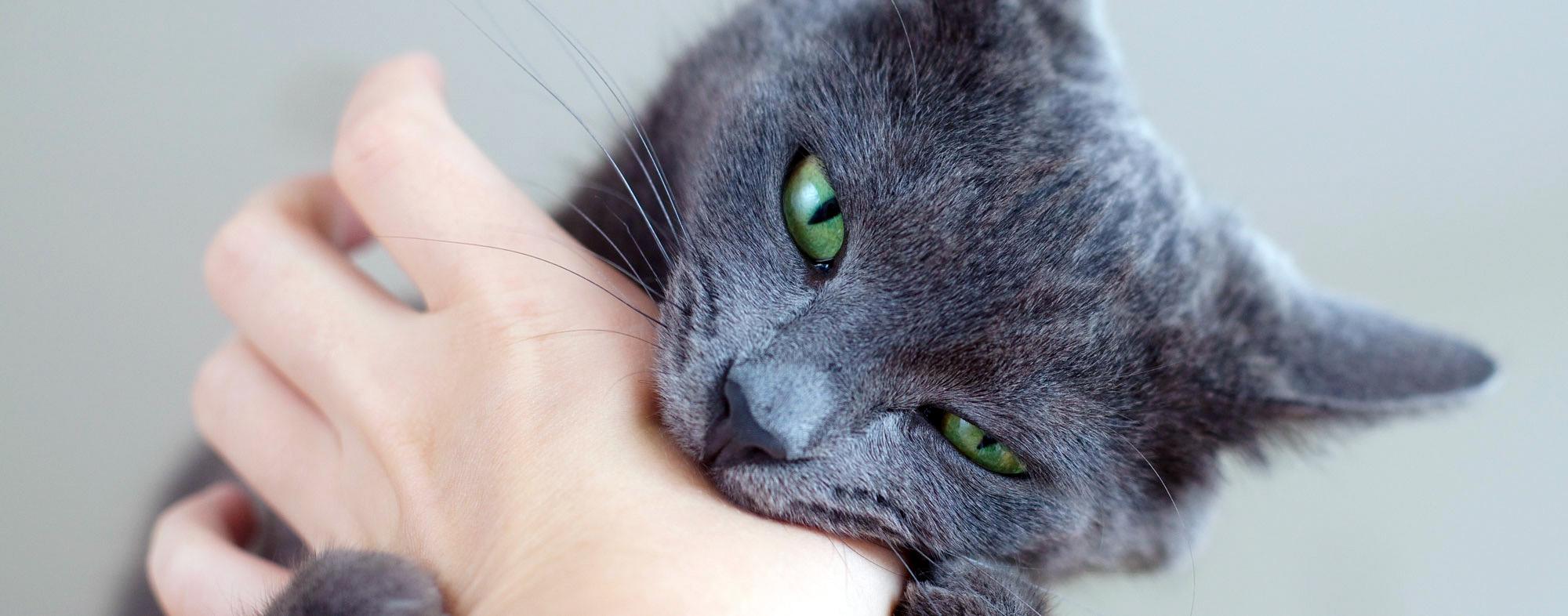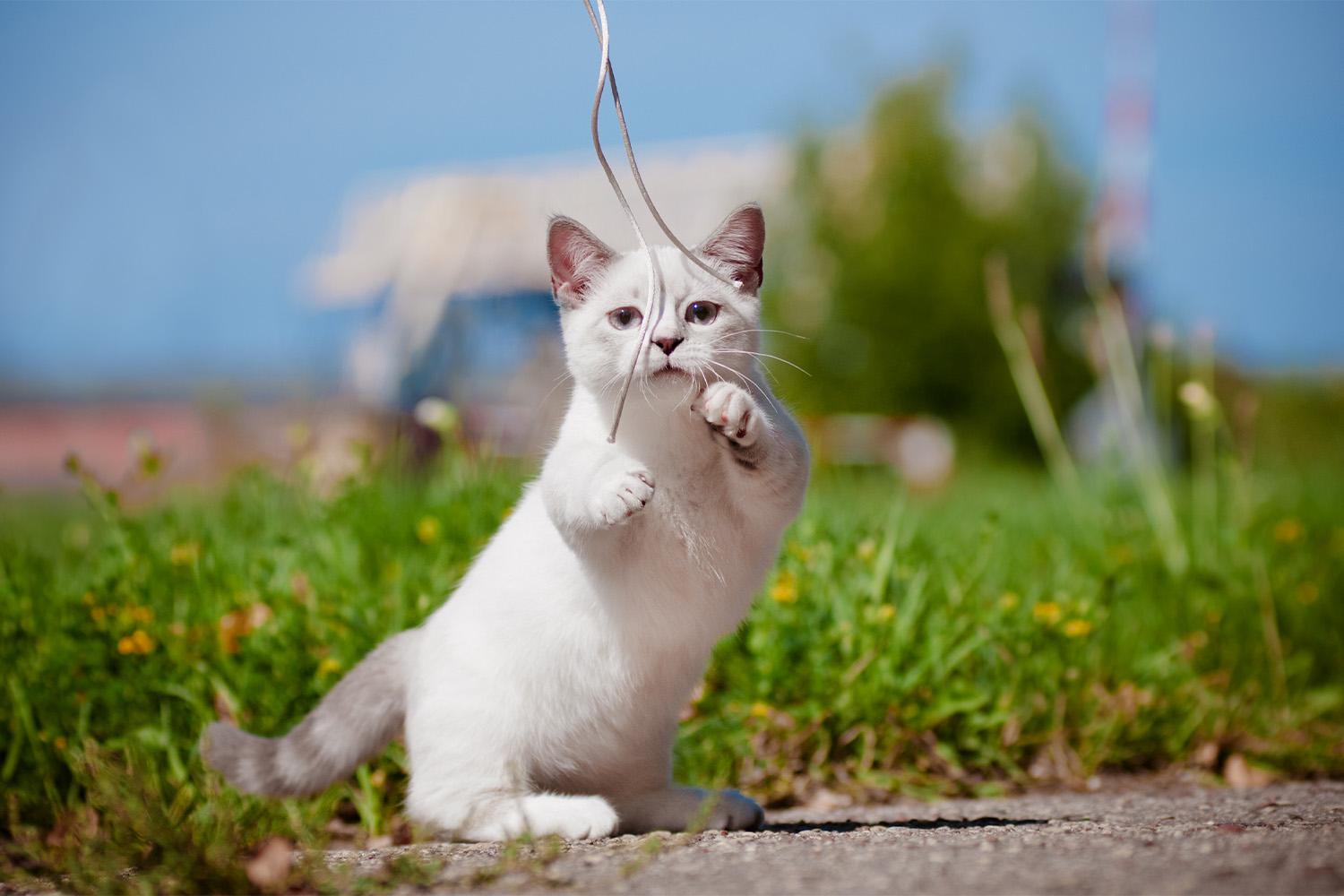If you’re a cat owner, you may have experienced the surprise and sometimes mild annoyance of your feline friend ambushing your feet while you’re minding your own business. One moment you’re strolling around the house, and the next, your cat has pounced, playfully biting your ankles or toes. This quirky behavior might leave you wondering: Why does my cat bite my feet?
In this article, we’ll explore the reasons behind this playful habit, from instinctual hunting behaviors to the playful nature of our furry companions. With a better understanding of your cat’s actions, you can foster a more harmonious environment and perhaps even find ways to channel that playful energy into more appropriate outlets. So, let’s dive into the world of feline foot biting and discover what’s really going on when those tiny teeth come into contact with your toes!
Table of Contents
- Understanding the Root Causes of Foot Biting Behavior
- The Role of Playfulness and Hunting Instincts in Cats
- How to Redirect Foot Biting into Positive Playtime Activities
- Creating a Comfortable Environment to Minimize Foot Biting
- Q&A
- The Way Forward
Understanding the Root Causes of Foot Biting Behavior
Foot biting behavior in cats can often leave pet parents scratching their heads in confusion. This quirky habit can stem from a variety of root causes, each reflecting the unique personality and needs of your feline friend. The playful nature of cats means that they often see feet as intriguing, moving objects that mimic the prey they would hunt in the wild. Additionally, if your cat feels bored or lacks proper stimulation, they may resort to playful attacks on your feet as a way to entertain themselves. Understanding these motivations can help you address the underlying issues and enrich your cat’s environment.
Moreover, foot biting can also be a form of affection or a way of seeking attention. Cats are known for their quirky communication methods, and a gentle nip might just be their way of playing with you or expressing their love. It’s important to recognize the difference between playful bites and aggressive behavior. To better understand your cat’s foot biting habits, consider these factors:
Playfulness: Feet moving quickly can trigger their hunting instincts.
Boredom: Lack of stimulation can lead to unwanted behaviors.
Attention-Seeking: Cats may nip to get your focus.
Affection: Gentle bites can be a sign of love and bonding.
The Role of Playfulness and Hunting Instincts in Cats
Cats are inherently playful creatures, driven by their natural instincts. When your feline friend sinks its teeth into your feet, it’s often a manifestation of their hunting behavior. In the wild, cats rely on their agility and stealth to capture prey. Your feet, moving unpredictably, can mimic the movements of small animals, triggering a cat’s instinct to pounce and bite. This playful yet predatory behavior is a way for them to hone their skills, and it’s important to understand that for a cat, biting isn’t always an aggressive act. Instead, it can be a form of exercise, mental stimulation, or just a way to engage with their environment.
To enhance your understanding of this playful habit, consider the following aspects of your cat’s behavior:
Energy Levels: Younger cats are more likely to exhibit playful biting due to higher energy and curiosity.
Playtime: Regular interactive play sessions with toys can redirect their biting instincts away from your feet.
Socialization: Cats that are well-socialized learn to play gently and may be less likely to bite.
By recognizing the playful nature of this behavior, you can create an enriching environment that satisfies your cat’s instincts while protecting your feet from unexpected nibbles.
How to Redirect Foot Biting into Positive Playtime Activities
Redirecting your cat’s foot-biting habit into more positive play experiences can be both fun and beneficial for their mental stimulation. Start by introducing a variety of engaging toys that can replace your feet as a target. Interactive toys, such as feather wands or laser pointers, can provide a great outlet for their energy while keeping them entertained. Additionally, consider puzzle toys that dispense treats; these will challenge your cat’s intellect and divert their focus from your feet to something more appropriate.
Another effective strategy is to establish playtime routines that encourage your cat to engage with you rather than your feet. Try setting aside specific times each day dedicated solely to play. Here are a few playful activities to incorporate into your routine:
Chase Games: Utilize a ball or crumpled paper to get your cat running.
Hide and Seek: Encourage your cat to find you or treats hidden around the house.
Obstacle Courses: Create a mini course with cushions and boxes for them to navigate.
Creating a Comfortable Environment to Minimize Foot Biting
Creating a serene atmosphere can significantly reduce a cat’s urge to engage in playful foot biting. Start by ensuring your home has designated areas where your cat can feel secure and safe. This might include cozy napping spots with soft blankets and scratching posts, which can serve as their personal retreats. Additionally, consider the following elements to enhance your cat’s environment:
Interactive Play Areas: Employ toys that stimulate your cat’s natural hunting instincts, such as feather wands and laser pointers, redirecting their energy away from your feet.
Calm Zones: Create quiet spaces without high foot traffic where they can retreat when feeling overwhelmed.
Consistent Routines: Establishing regular feeding and play schedules can help your cat feel more secure, reducing anxiety-related behaviors like biting.
Moreover, environmental enrichment plays a crucial role in minimizing unwanted behaviors. By incorporating features that engage your cat’s senses and instincts, you can keep their minds stimulated and prevent boredom. Here’s a simple way to evaluate your cat’s environment:
| Feature | Purpose |
|---|---|
| Multiple Vertical Spaces | Allows climbing and surveying territory, promoting confidence. |
| Interactive Feeders | Makes mealtime engaging, encouraging thinking and problem-solving. |
| Natural Light or Sunny Spots | Enhances mood and provides a warm, comfortable resting area. |
Q&A
Q: Why does my cat seem to have a particular fascination with my feet?
A: Cats are naturally curious creatures, and your feet are often moving targets! The movement of your feet can mimic the behavior of small prey, triggering your cat’s instinctual hunting behavior. Additionally, cats are drawn to the warmth and scent of their owners, making feet an appealing target for playful bites.
Q: Is foot-biting a sign of aggression?
A: Not necessarily! In many cases, foot-biting is a playful behavior rather than an indication of aggression. Cats often engage in play that simulates hunting, and if your cat is playfully nipping at your feet, it’s likely just expressing their playful side. However, if the biting becomes more aggressive or you notice other signs of distress, it may be worth consulting with a vet.
Q: Should I encourage this behavior or discourage it?
A: While playful biting can be amusing, it’s important to establish boundaries. Encouraging gentle play is fine, but if your cat’s biting becomes too rough, it’s best to gently discourage it. Redirect your cat’s energy with appropriate toys to promote positive play behavior and keep your feet safe!
Q: How can I redirect my cat’s foot-biting habit?
A: Providing your cat with various engaging toys can help redirect their attention away from your feet. Interactive toys, feather wands, or laser pointers can offer the stimulation they seek. Also, try to engage your cat in active play sessions to channel their energy positively.
Q: Is there a specific age when cats are more likely to bite feet?
A: Kittens are particularly prone to this behavior as they explore their environment and practice their hunting skills. However, adult cats can also engage in foot-biting, especially if they are feeling playful or bored. Regular playtime helps reduce this behavior at any age.
Q: Are there certain breeds that are more likely to exhibit foot-biting behavior?
A: All cats, regardless of breed, can exhibit this playful habit. However, playful and energetic breeds such as Siamese, Abyssinians, and Bengals may show a higher tendency for engaging in playful nipping behaviors, including foot-biting.
Q: What should I do if my cat bites my feet too hard?
A: If your cat bites too hard, let out a sharp “ow!” to signal that the play has gone too far. This helps your cat learn to moderate their behavior. If they continue to bite aggressively, take a break from the interaction and give them some time to calm down.
Q: Can stress or anxiety contribute to foot-biting behavior?
A: Yes, stress or anxiety can sometimes lead to unusual behaviors in cats, including foot-biting. If you’ve noticed changes in your cat’s behavior or if they’re biting out of frustration, it’s a good idea to address any stressors in their environment, such as changes in routine or the presence of unfamiliar animals.
Q: When should I be concerned about my cat’s biting behavior?
A: If your cat’s biting becomes more frequent, aggressive, or is accompanied by other behavioral changes (such as hiding or excessive vocalization), it may be time to consult a veterinarian or a feline behaviorist. They can help assess any underlying issues and provide guidance on how to manage your cat’s behavior.
By understanding why your cat bites your feet, you can create a harmonious and playful environment where both you and your furry friend can enjoy each other’s company without worried about sudden nips!
The Way Forward
while it may seem puzzling or even frustrating when your cat decides to target your feet for a playful nibble, understanding the reasons behind this behavior can help deepen your bond with your feline friend. Whether it’s a playful expression of affection, a natural hunting instinct, or simply a call for attention, your cat’s foot-biting habit is just another aspect of their unique personality. By recognizing and responding to their playful antics in a positive way, you can provide them with alternative outlets for their energy and curiosity. So next time your feet become the focus of your cat’s playful attacks, remember that it’s all part of the delightful and sometimes quirky world of cat behavior. Embrace the playfulness, and enjoy the special moments of connection that these little nibbles can bring!


















